THE NEGOTIATOR: One of the Best Action Thrillers of the ’90s
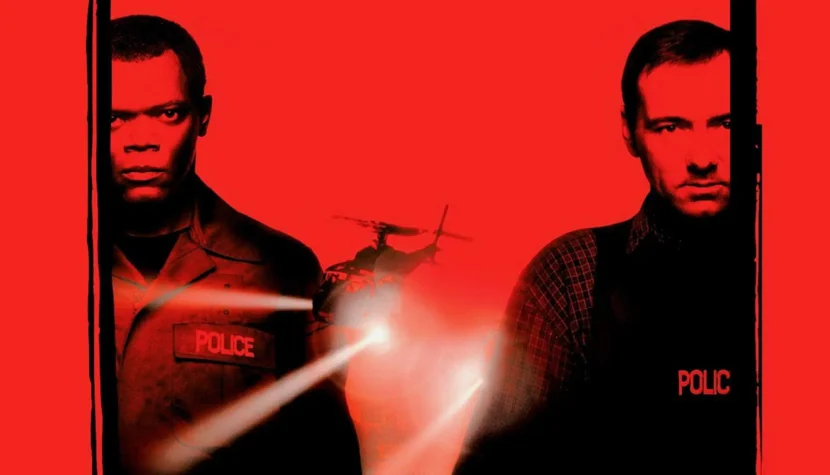
I can’t remember the last time I saw The Negotiator (probably not in this decade), but I clearly remember how I took it in – definitely more modest than other action films from the 1990s, more realistic, largely focused on the dialogue between the characters, with the tension coming from the apparent impossibility of resolving the conflict.
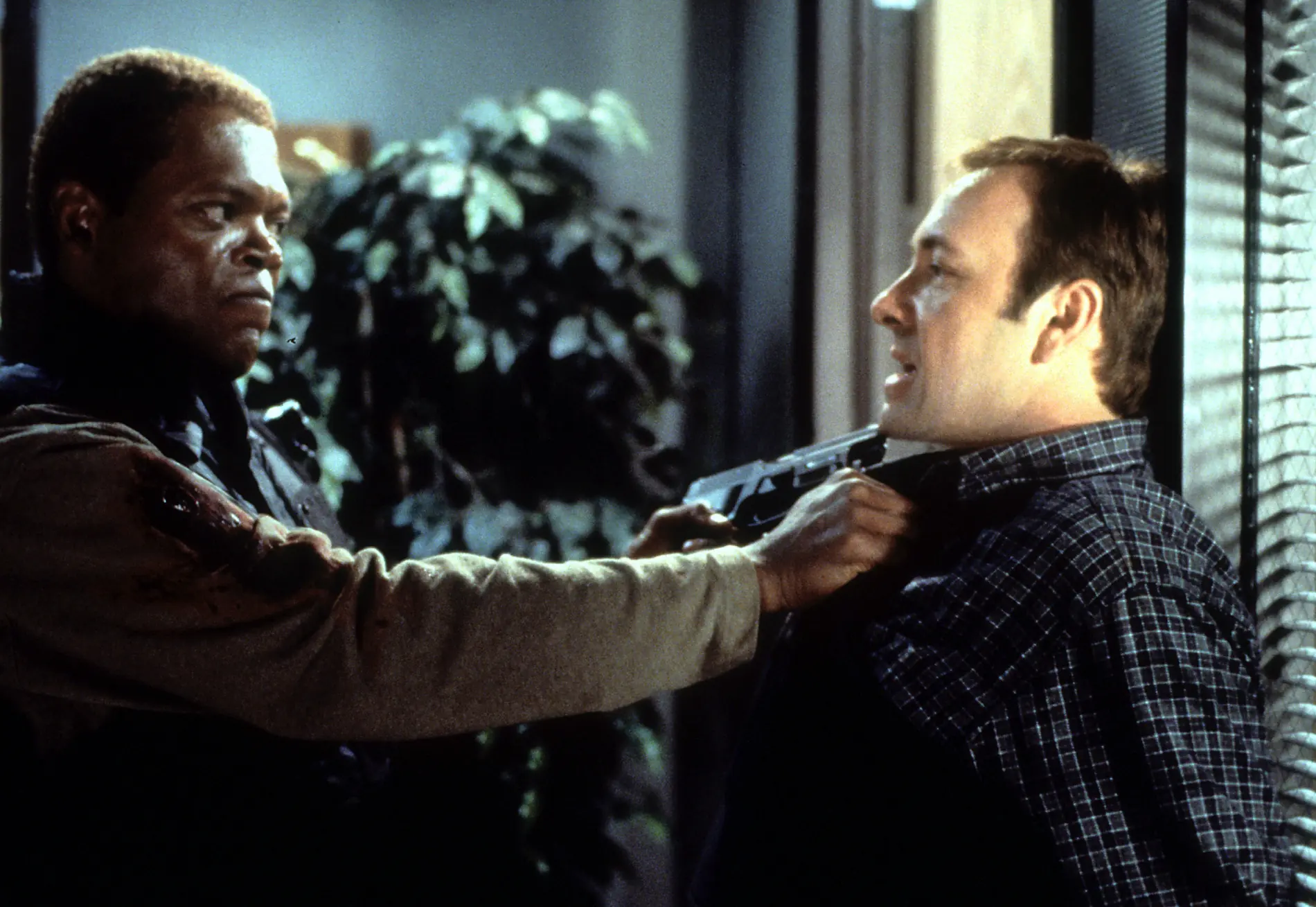
Did this make Felix Gary Gray’s film seem worse or better than, for example, Enemy of the State by Tony Scott, released a few months later, where the action raced ahead at breakneck speed, and the modern plot, based on technological revolution, was reflected in an aggressive form? Rather more traditional – a story of a cop wrongly accused of theft and murder, who, to prove his innocence, takes hostages, which, not coincidentally, caught the interest of Sylvester Stallone, who by then had already had his biggest successes behind him. Sly ultimately didn’t appear in the film, but even without his presence, The Negotiator pleasantly deviated from the bombastic action cinema of that decade. Twenty years later, there’s no noticeable difference between Gray’s film and, for example, Michael Bay’s work of the time, especially in terms of the need to maintain high spectacle pressure, not only during action scenes but even in prosaic moments, like opening the trunk.

This approach is not foreign to the film’s screenwriters, James DeMonaco (creator of The Purge series) and Kevin Fox. Using the true story of a negotiator suspected of embezzling from a police pension fund who took his accuser hostage, they revalued those events, turning the guilty officer into a positive character fighting for justice and truth, though there was little truth to it. What mattered more was the emotional tone of the whole story – it’s better to root for someone who deserves it. That someone here is Danny Roman, a Chicago negotiator, excellent at his job, a good friend and coworker, a loving husband, a man of crystal-clear integrity, though too often unnecessarily risking everything. His act of taking hostages at the internal affairs department doesn’t raise any moral doubts, even if it’s hard for us to believe in the execution of Roman’s plan. He wants not only to clear his name but also to find the real culprits. But how can he do this when even his former friends and colleagues are against him? Among them are also the corrupt ones. How can he distinguish those merely doing their duties, who, after all, must stop him, from those who truly wish him harm?

An impossible scenario, but action films of that time thrived on such improbable situations. Therefore, it shouldn’t come as a surprise when a light at the end of the tunnel appears for Danny, in the form of Chris Sabian, a negotiator called in by Roman from the other side of the city. The two men don’t really know each other, but Sabian’s reputation speaks highly of him, and what’s more, he has nothing to do with the corruption scandal that the main character is accused of. He’s therefore clean, impartial, and inclined to resolve the matter without bloodshed. From this point on, the film turns into a duel between two positive (!) characters, surrounded by cold bureaucrats, people internally conflicted due to the alleged betrayal of Roman, and those seeking to kill him. Among them, there’s a squad of familiar faces (David Morse, John Spencer, Ron Rifkin, J.T. Walsh, Paul Giamatti), actors good enough that even stereotypically conceived characters are turned into strong and memorable heroes.
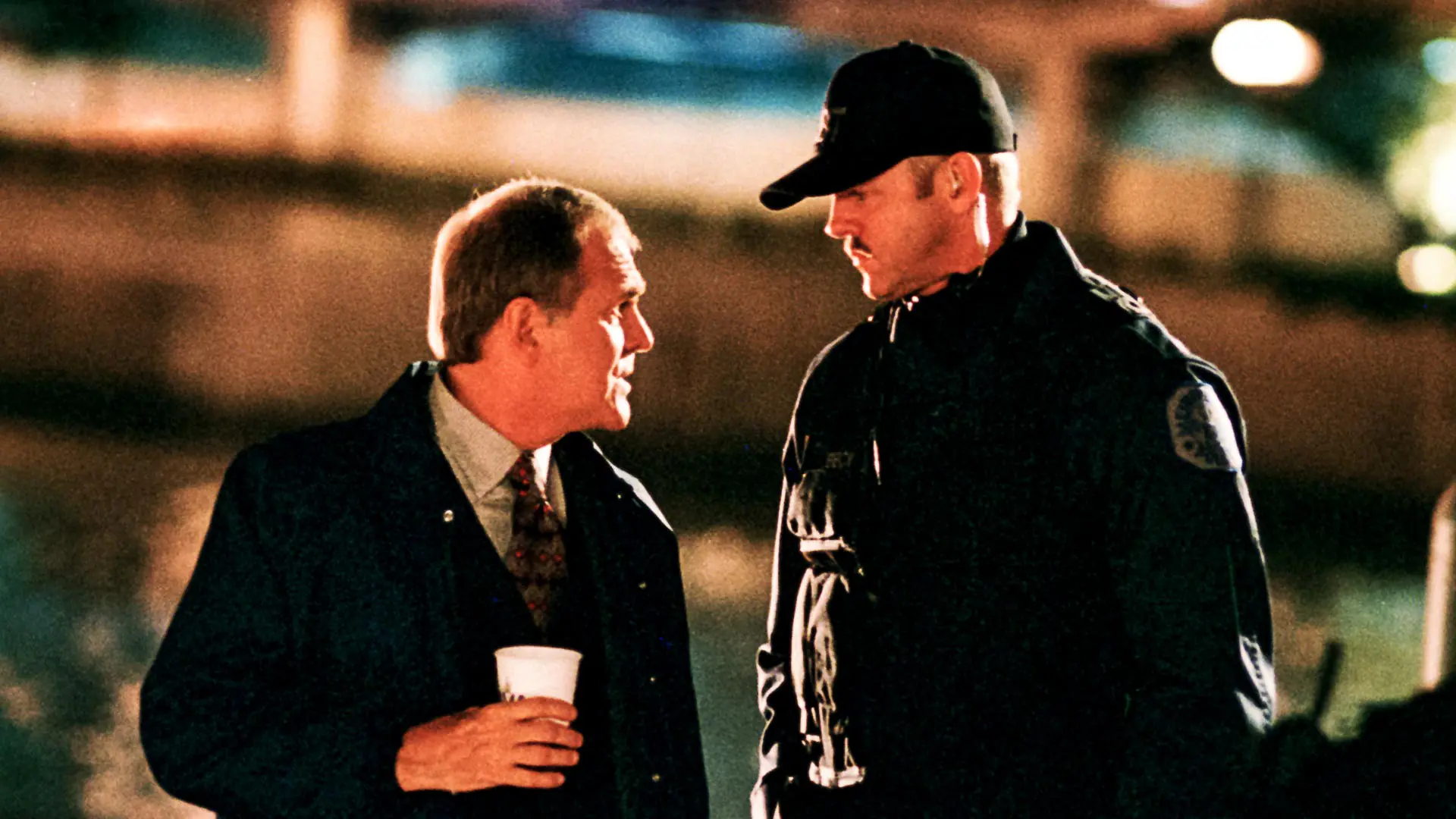
Of course, the most important are Samuel L. Jackson, playing Roman, and Kevin Spacey, playing Sabian. Acting-wise, they are more than credible, adding class and weight to Gray’s action thriller, which, however, didn’t translate into box-office success – The Negotiator was a significant flop in a season dominated by Armageddon by Bay, Lethal Weapon 4 by Richard Donner, and The Mask of Zorro by Martin Campbell.
The few action scenes and the director’s sympathetic approach to the story, seeing the main character’s actions as more an act of desperation than heroism, might have suggested a sensation closer to realism at the time of its release, but watching The Negotiator today, it perfectly embodies the ideals of late-20th-century genre cinema. Graeme Revell’s music doesn’t just illustrate what’s happening on the screen but sets the emotional tone of the story, leaving no doubt about what and how the audience is supposed to feel at any given moment. It’s loud, not devoid of pathos, and works best in scenes where Roman’s life is in danger, less so when it serves as the backdrop for dialogue. On the other hand, in a film where the strength of the characters is precisely in their words, it becomes as effective a tool as any weapon; no wonder the most tension-filled moments are exchanges of words, not gunfire.
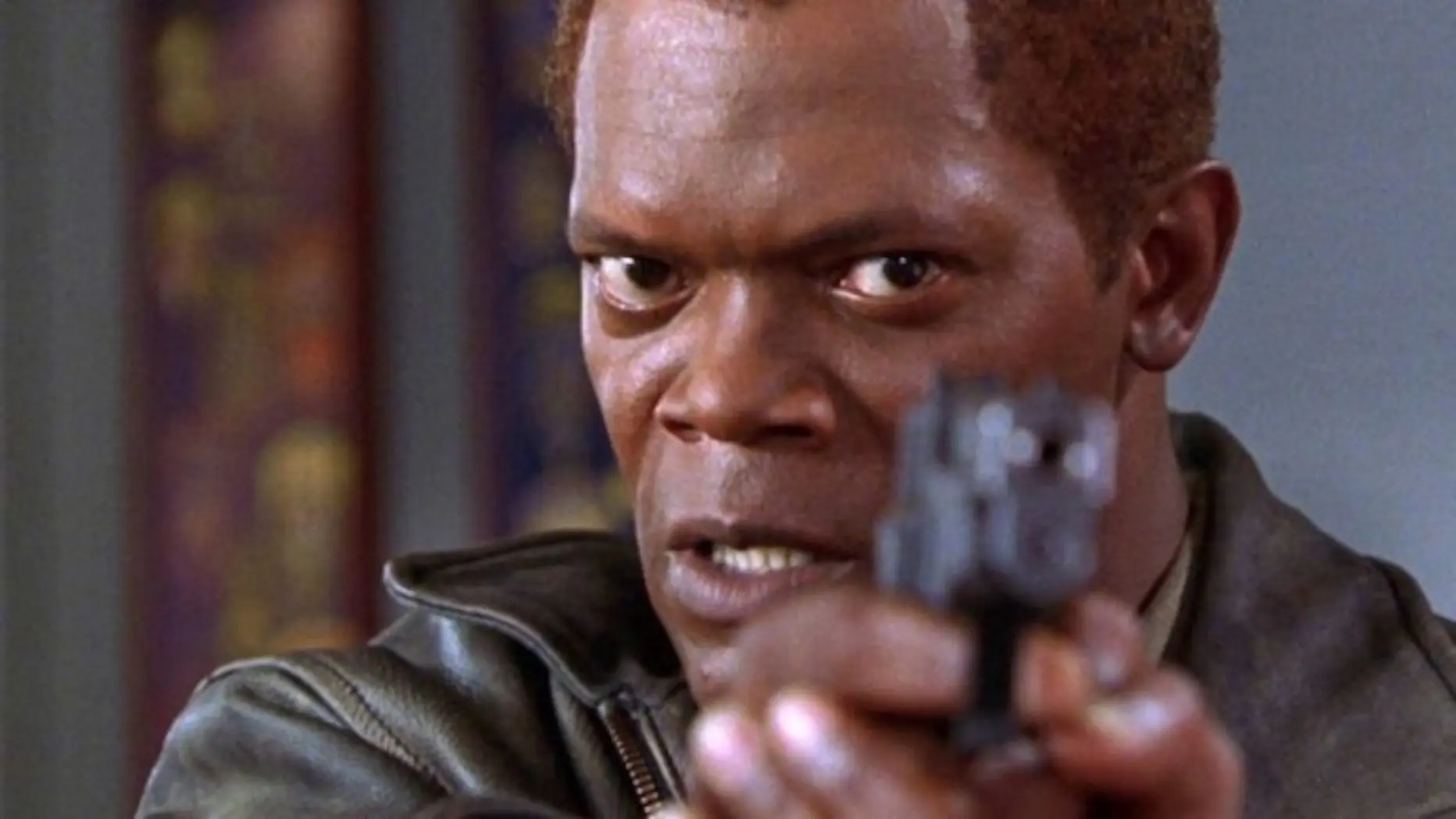
The duel between Jackson and Spacey still impresses today because neither actor needs shootouts, chases, or explosions to be heroes of action cinema (though Russell Carpenter’s camera doesn’t shy away from a stereotypical shot when one of the negotiators walks in slow motion while an explosion and fire occur in the background). There’s quite a paradox in this, as their characters aim for as little action as possible. Especially Sabian/Spacey, who, for almost the entire film, is attached to the headset, absent during the scenes of the attack on the barricaded Roman, only later realizing that not everything is as it seems. Despite the recent controversies and accusations surrounding the actor’s behavior, watching him in The Negotiator is no different from watching it before the scandal. This may speak to the talent of the two-time Oscar winner, who even in a purely genre thriller showcases his abilities, merging with the character he plays to the point where we forget about his current situation.
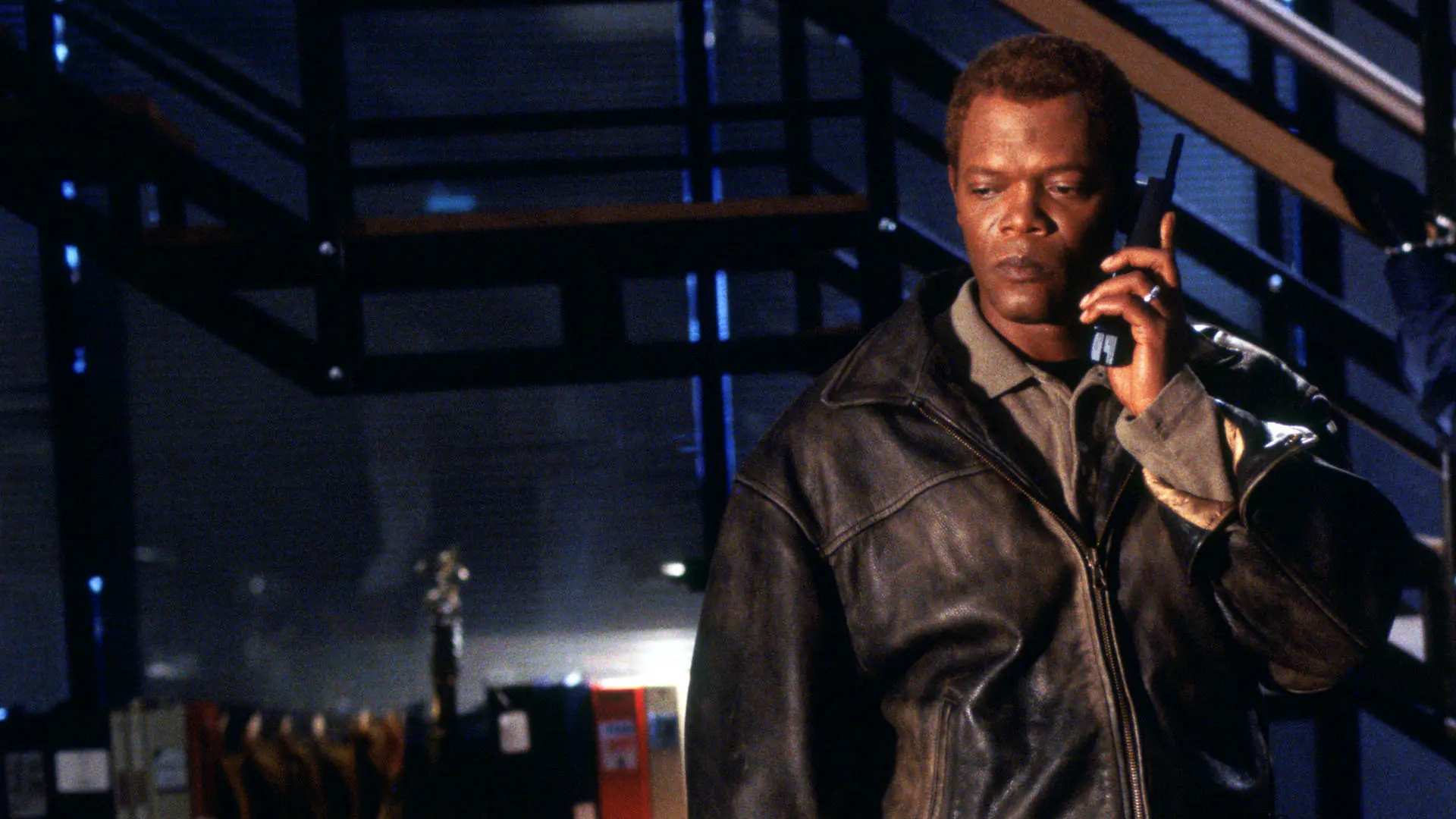
Or it could be about my sympathy for Spacey, especially for the films and roles from what I believe is the best period of his career (after K-PAX, cinema didn’t have much to offer him anymore). Ironically, we root for the character he plays, an actor now ostracized, in a story about a good cop who is forced to cross the line of the law, based on a true story and turning the villain into a positive character. Almost thirty years after its release, The Negotiator is still an exciting film, and now even more subversive.

